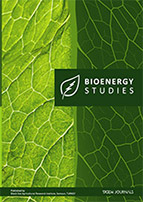Turkish Journal of Fisheries and Aquatic Sciences
2019, Vol 19, Num, 7 (Pages: 561-570)
Molecular Characterization of Estrogen-Related Receptor (ERR) of Macrobrachium rosenbergii and its Differential Expression During Ovary Development Stages and NP Exposures
2 Laboratory for Marine Fisheries Science and Food Production Processes, Qingdao National Laboratory for Marine Science and Technology, Qingdao 266071, China
3 Guangdong Zhen Yuan Aquatic Industry Co., Jieyang, 522010,China DOI : 10.4194/1303-2712-v19_7_03 Viewed : 3262 - Downloaded : 1709 Nonylphenol (NP) is a xenoestrogen whose estrogenic effects are mediated by the estrogen receptor (ER) in vertebrates. However, the ER appears to be absent in arthropods. Estrogen-related receptor (ERR) may be a candidate that responds to NP. To investigate the effects and mechanisms of NP in giant freshwater prawn Macrobrachium rosenbergii, a unique homolog of mammalian ERR was cloned from M. rosenbergii by rapid amplification of cDNA ends. The full length ERR cDNA consisted of 1897 bp with a 1374 bp open reading frame encoding 457 amino acid residues. RT-PCR analysis revealed that ERR was widely expressed in various tissues of male and female M. rosenbergii, including the brain ganglion, hepatopancreas, heart, and gonads. Interestingly, expression of ERR in ovaries was higher than that in testes. qPCR results showed high expression of ERR in ovaries at early developmental stages. NP exposure up-regulated the expression levels of ERR in the ovaries of M. rosenbergii in a time-dependent manner. The current study provides fundamental data to understand the response of ERR to NP exposure in M. rosenbergii. Keywords : Environmental endocrine-disrupting, chemicals, Xenoestrogen, Orphan nuclear receptor, Estrogen receptor
















